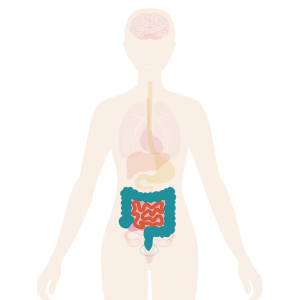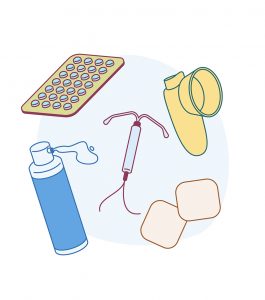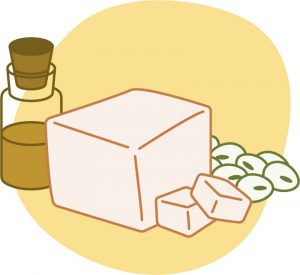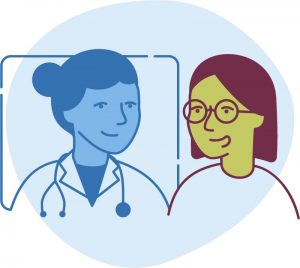
Join 1,000s of women in our pause. community
Get valuable information and support from our community and team of menopause specialists. Subscribe for the latest evidence-based information, free events, helpful articles and inspiring women’s stories.
Downloaded from www.mymenopausecentre.com
Direct URL: https://www.mymenopausecentre.com/symptoms/bowel-symptoms/
Common bowel symptoms include bloating, wind, constipation, and indigestion. People who already have irritable bowels may find their symptoms get worse.

The highly experienced doctors and nurses in our menopause clinic are here to help you. Appointments from £190.
Book An AppointmentIf you would like to learn more about the impact of your symptom(s) complete our free online menopause questionnaire here.
Many women who are troubled by bowel symptoms don’t make the link, but the menopause can result in changes in your gastrointestinal tract (or the gut, as it’s more commonly called).
Bowel symptoms relating to the menopause can range from bloating and heartburn to wind or reflux. You may also find that your bowels become irregular (any change in bowel habit needs discussing with a doctor) or that you suffer from constipation.
Bowel changes during the menopause may be caused by a loss of oestrogen in the gut’s oestrogen receptors.
There may be an indirect effect as a result of an increase in the stress hormone, cortisol. Diarrhoea, wind and bloating can also occur if you’re experiencing stress and anxiety. If you already have irritable bowel syndrome, the stress and anxiety of the menopause can make it worse.
There’s evidence to suggest that hormones may affect the development of bowel cancer. Again, this isn’t fully understood, but the Women’s Health Initiative Study showed a reduction in the risk of bowel cancer in women who took Hormone Replacement Therapy (HRT).
but the Women’s Health Initiative Study showed a reduction in the risk of bowel cancer in women who took Hormone Replacement Therapy (HRT).
You can find out more about HRT here.
Gallbladder disease is common. Around 10% of the UK population over the age of 40 have gallstones, and many may not know they have them[1]. The gallbladder is a small sac that sits under the liver and releases substances into the gut that help you to digest fat.
Pain in the upper right abdomen, particularly after eating fatty food, can be a symptom of gallbladder disease, or gallstones. Oral HRT is associated with a small increased risk of gallbladder disease – the risk is lower if you have transdermal HRT (HRT you take through your skin).
Bowel symptoms are common, affecting up to a quarter of women at some time in their lives, but it’s difficult to know how many of these are as a result of the menopause.
For some women, their bowel function changes when they are stressed or anxious. Over half of women transitioning through the menopause experience symptoms related to mood [2].
Like most menopause symptoms, bowel symptoms can affect women at any point of the menopause.
It’s important to see your doctor about any changes in your bowel, pains in your abdomen, if your bowel habit has changed or if you have developed reflux symptoms. Irritable bowel syndrome doesn’t usually start out of the blue in later life, so it’s essential to rule out bowel and ovarian cancer. Reflux may need investigating too.
Some ‘red flag symptoms’ do need an urgent investigation – so please book to see a doctor as soon as you can. These include:
One way to help lessen bowel symptoms could be to switch to a more easily digested diet, like a low FODMAP diet.
 Increasing your intake of fibre can help with constipation, but it can lead to an increase in wind. If this is an issue, you may want to avoid legumes, fizzy drinks, chewing gum and excessive carbohydrates.
Increasing your intake of fibre can help with constipation, but it can lead to an increase in wind. If this is an issue, you may want to avoid legumes, fizzy drinks, chewing gum and excessive carbohydrates.
Eating phytoestrogens (foods like soya beans, tofu and linseed) can help menopause symptoms for some women, although whether or not this applies to bowel symptoms is unclear.
A food diary can be a really handy tool for seeing if any specific foods trigger your bowel symptoms.
HRT is an effective way of treating symptoms of the menopause such as hot flushes, anxiety, helping you to deal with stress, improving your sense of wellbeing, concentration and energy. If your bowel symptoms are linked to anxiety and stress, HRT may help. It’s probably fair to say that it’s unclear whether HRT helps bowel symptoms directly related to the menopause.
We have lots more information on HRT here.
Try to manage your stress levels – we know it’s easier said than done, but if you can, try to work out the changes you need to make to reduce stress in your life.
Staying hydrated during the menopause transition can help lessen symptoms, so always having a water bottle to hand is a great idea.

Smoking is related to many disorders of the digestive system and can worsen some of the symptoms of irritable bowel syndrome, particularly reflux. People who smoke are also more likely to develop bowel cancer than those who don’t. While this isn’t an issue directly related to the menopause, it’s another reason to advise you to stop. If you would like help to quit, the NHS is a great place to start.
If reflux is an issue for you, limiting or cutting out alcohol and caffeine can have a positive impact. You might try switching to herbal or decaffeinated tea and coffee for a while and see if it helps – it often does.

This can help if stress and anxiety are triggering your bowel symptoms. Cognitive behavioural therapy (CBT) can challenge negative thinking and help you break out of the vicious circle.
You can find out more about our CBT partners Sue and Claire here.

If you’re worried about bowel symptoms, you should see your GP. To talk about your symptoms in relation to the menopause, book an appointment with our menopause clinic.
If you think you may be experiencing symptoms of the menopause transition, you can learn more with our symptom checker or by taking our Menopause Questionnaire.
You can also find more information about the menopause transition at the British Menopause Society and the National Institute for Health and Care Excellence.
Dr Clare Spencer
Registered menopause specialist, GP and co-founder; see Dr Clare in person at The Spire Hospital, Leeds or online
07/04/2021
The highly experienced doctors and nurses in our menopause clinic are here to help you. Appointments from £190.
Book An AppointmentWe’ve created pause. as a space for women to come together and share stories about their menopause experience, ask questions, and to find support and inspiration. We'll also share the latest news and updates on the menopause from our experts.
Share your email to receive the latest news, updates and information on new products and treatments from My Menopause Centre and our pause. community. You can unsubscribe at any time.
We're committed to protecting and respecting your privacy - see our Privacy Policy and Terms and Conditions

Whether you want to discuss your symptoms, create a treatment plan that's right for you, understand some test results or have a check-up, the highly experienced doctors and nurses in our menopause clinic are here to help you.
Book nowSource: Bateson MC. Gallstones and cholecystectomy in modern Britain. Postgraduate Medical Journal 2000;76:700-703.
Source: Ford AC. Irritable Bowel Syndrome. Clinical Evidence 2010;01:410.